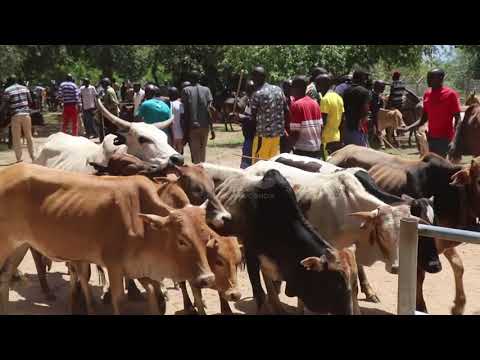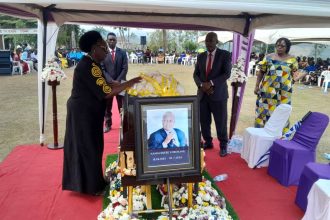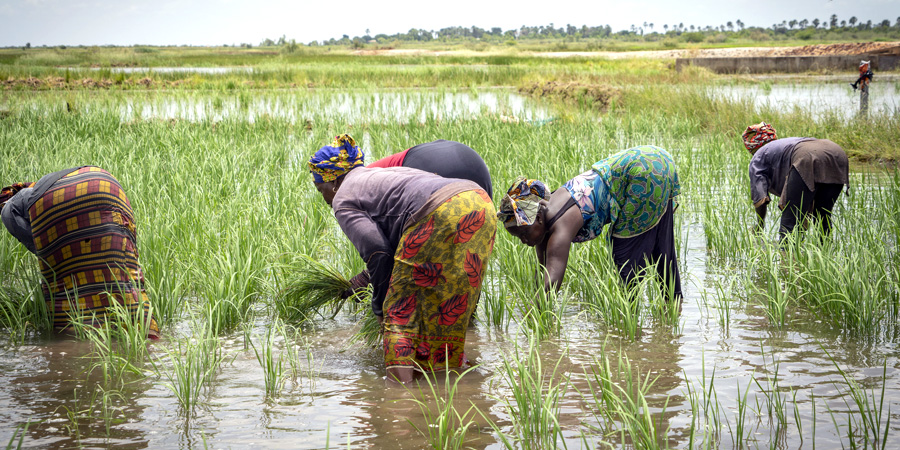Transforming Karamoja: Livestock Markets Boost Local Economy
In the remote region of Karamoja, northern Uganda, traditional mud and wattle homes are giving way to a new era of development, thanks to the transformation of livestock markets. This change is altering the local economy and fostering a cultural shift in the region, with significant improvements reported. This article explores the impact of these changes and the initiatives behind them.
Changing the Economic Landscape in Karamoja
The arid region of Karamoja, bordering Kenya, has a deep-rooted connection to livestock. Cattle have long been central to both the culture and economy of the region. However, for years, this dependence on cattle fueled a cycle of violent cattle raiding, which impeded social progress.
In recent years, Pokot County in Karamoja, once notorious for cattle rustling, has witnessed a remarkable transformation. The signs of change are evident along the road between Amudat Town Council and Karita Town Council. Iron-roofed houses, once a rare sight, are now emerging as a symbol of the area’s economic shift.
Karamoja’s Livestock Market Renaissance
The heart of this change lies in the revitalization of livestock markets. Karita Livestock Market, one of two such facilities in Amudat District, was commissioned in August 2022. This market is part of the Development Initiative for Northern Uganda (DINU), a €150 million project funded by the European Union, aiming to drive development across 18 districts in northern Uganda.
Karita Livestock Market covers eight acres and boasts modern facilities, including shelters, water sources, and loading ramps. This transformation has significantly improved livestock prices and eliminated middlemen, allowing farmers to sell without pressure. The market’s success has led to the construction of modern buildings in Karita Town and the surrounding areas.
Empowering Women and Reducing Violence
Beyond economic changes, the market has had a broader impact. Women, drawn by the demand for food and beverages from market-goers, have established food vending businesses, achieving a degree of economic independence. This economic empowerment has reduced domestic violence, as women contribute to their households.
Loyce Angura, a single mother, exemplifies this transformation. She runs a beverage vending business and saves money for her daughter’s future education. The market attracts buyers from distant areas, benefiting vendors like Angura.
Stimulating Education and Dampening Cattle Raiding
The improved income generated by the market has enabled parents to send their children to school. This shift in focus and the opportunity for education have reduced delinquency among the youth, making them less likely to engage in cattle raiding.
On market days, Bashir Ibrahim, chairperson of the Karita Livestock Market Committee, ensures livestock health and prevents the sale of stolen animals. This control was not possible before the market’s construction, leading to improved disease control and security.
Boosting Local Revenue and Governance
The market’s success has also enhanced local revenue. Livestock sales generate a substantial portion of local revenue in Karamoja, contributing to essential services and local government funding.
Approximately Shs7,000 is levied on each cow, while goats and sheep pay Shs2,000. This revenue, averaging Shs15 million monthly, stays with Karita Town Council, supporting local authorities in providing services.
Development Initiative for Northern Uganda (DINU)
The Development Initiative for Northern Uganda (DINU), a five-year program launched in 2018, focuses on poverty reduction and peace consolidation in northern Uganda. The program aims to restore the region’s productive capacity, which was severely affected by a two-decade insurgency.
DINU has achieved several milestones, including strengthening local authorities’ capacity to manage resources efficiently and mobilize local revenue. It has contributed to the improvement of district fiscal positions, enhancing the delivery of goods and services to the population.
A Multifaceted Approach to Development
UNCDF, the United Nations Capital Development Fund, has implemented DINU across 18 districts in northern Uganda, focusing on various development components. These include road infrastructure rehabilitation, food security, and good governance, along with initiatives like the Karita Livestock Market.
UNCDF’s flexibility to invest in interventions that positively impact society sets it apart from other UN agencies. The program’s success in improving the fiscal positions of beneficiary districts and enhancing their capacity to serve their populations highlights its positive social impact.
The Cost of Change
The Karita Livestock Market, part of the DINU program, represents a substantial investment. DINU, a €150 million initiative funded by the European Union, has brought about significant changes in 18 districts across northern Uganda. Karita Livestock Market, part of the program’s €26 million component, is managed by the United Nations Capital Development Capital Fund (UNCDF).
This investment has led to economic growth, cultural transformation, and improvements in local governance, demonstrating the positive impact of targeted development initiatives in Karamoja and other regions of northern Uganda.




















